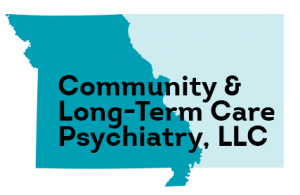Dementia and Cognitive Impairments
It is normal and expectable for all of us to have occasional memory lapses when we get older. We attribute it to the normal aging process and as long these problems do not interfere with our everyday life they are not something to be overly concerned about. However when these “memory slips” come with episodes of confusion, hallucinations, or if they are severe enough to prevent us from continuing functioning normally, then such lapses are something to be addressed with the specialist.
“Dementia” is an umbrella term describing a variety of diseases and conditions that develop when nerve cells in the brain (called neurons) die or no longer function normally. The death or malfunction of neurons causes changes in one’s memory, behavior and ability to think clearly. Difficulty remembering names and recent events is often an early clinical symptom; apathy and depression very often are also early symptoms. Later-developing symptoms include impaired judgment, disorientation, confusion, behavior changes and difficulty speaking, swallowing and walking.
There are several different types of dementia that may be primary (the most common are Alzheimer’s dementia, vascular dementia, Lewy Body dementia, and Frontotemporal dementia), or secondary to other diseases (like Parkinson’s-related dementia, dementia secondary to Wilson’s disease, Huntington’s-related dementia, etc.). Considering that most of the manifestations of dementia involve behavioral changes, we truly believe that treatment of dementia and other cognitive dysfunctions should involve a psychiatrist at their earliest stage, as progression of some of the dementias may be slowed down and early management of behavioral issues may prevent early placement in a nursing home.
Some conditions have symptoms that mimic dementia, but unlike dementia, they may be reversed with treatment. Common causes of potentially reversible dementia-like symptoms are depression, delirium (confusion or memory lapses secondary to some medical conditions), side effects from prescribed medications, thyroid problems, certain vitamin deficiencies, and excessive use of alcohol or other substances. Early involvement of a psychiatrist and recognition of these problems may lead to a complete resolution of the dementia-like symptoms, and may even completely return patients to normal daily functioning.
Some of CLTCP physicians are specifically trained in geriatric psychiatry, and all of our providers have very high rates of success in management of patients with cognitive and behavioral problems. We treat these patients in our outpatient practice, in the multiple hospitals where we provide consulting services for medically admitted patients, and in a variety of long-term care institutions. We are also advocates for patients and their families, and we provide education within the communities we serve.



